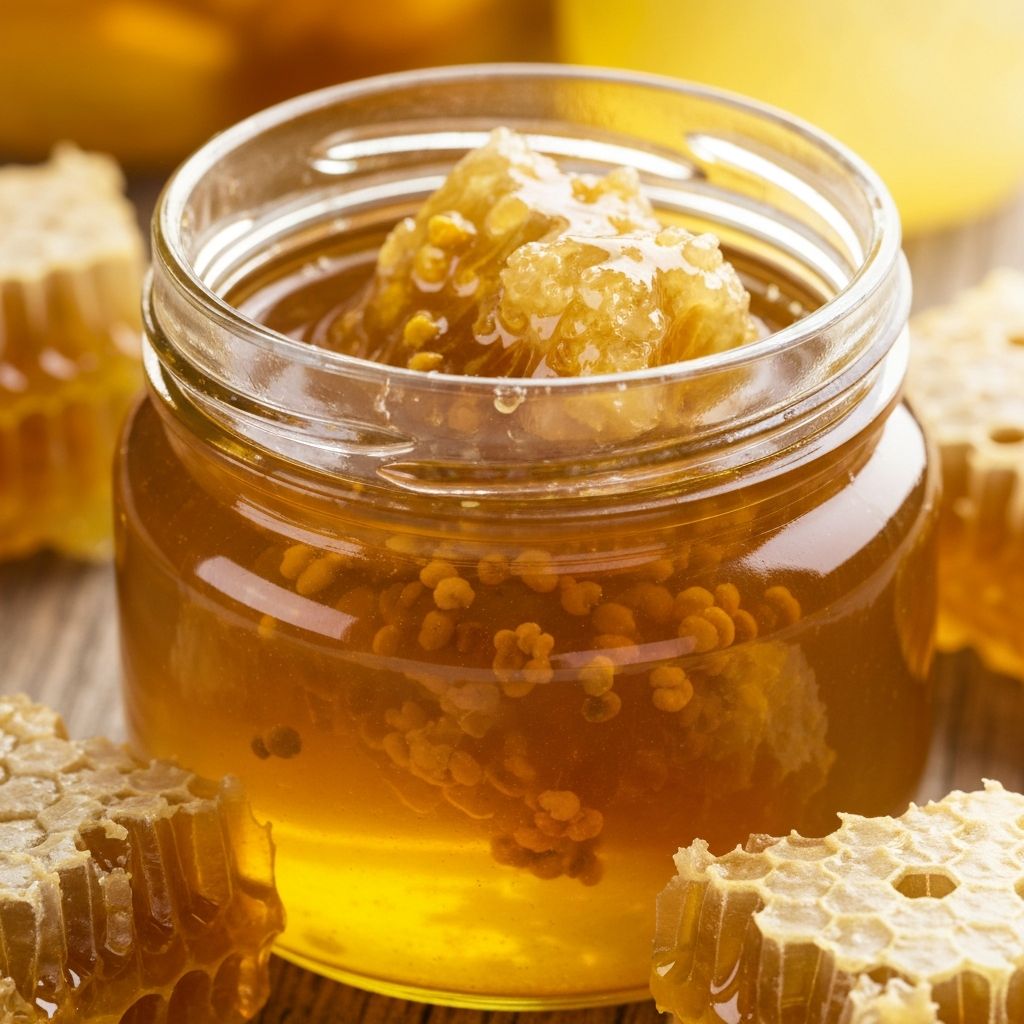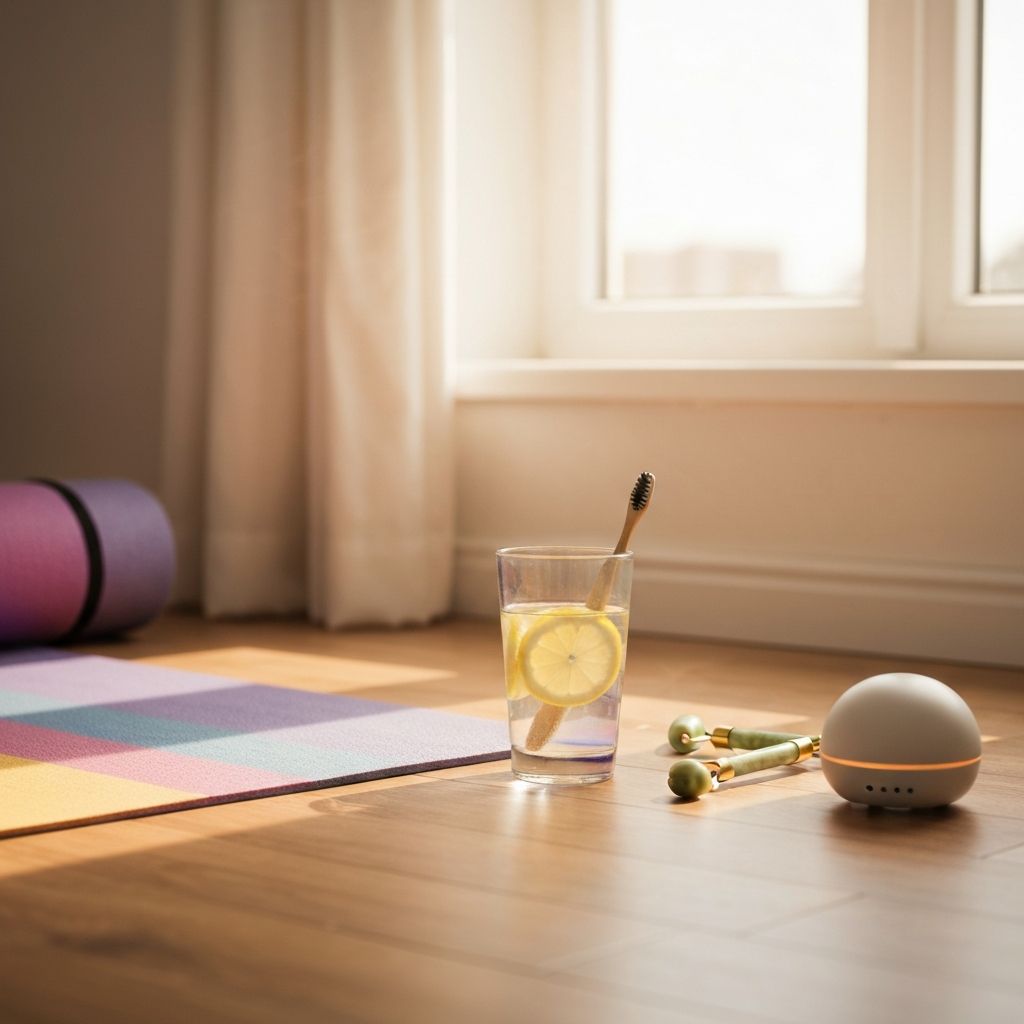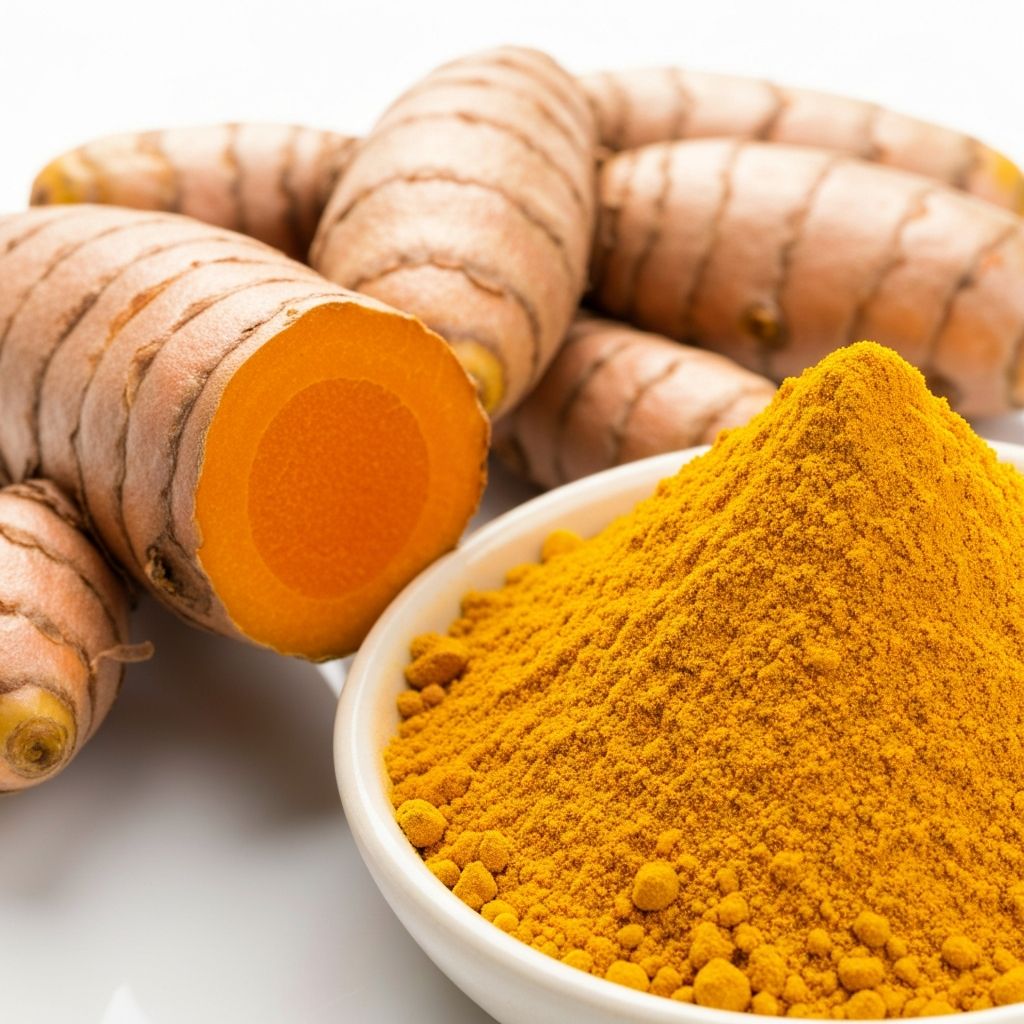Top 8 Traditional Uses of Honey for Wellness and Beauty
What You'll Learn
- Learn about natural remedies and their benefits
- Discover gentle, traditional home approaches
- Get expert tips for holistic wellness
- Understand proper usage and precautions
Honey isn't just sweet — explore its traditional uses as a natural comfort provider, moisturizer, and energy supporter.
Raw honey is nature's liquid gold, containing over 200 beneficial compounds including enzymes, antioxidants, vitamins, and minerals. Used for over 4,000 years in medicine and beauty, honey's unique antimicrobial, moisturizing, and healing properties make it one of the most versatile natural remedies. From treating wounds that resist antibiotics to creating luxurious skincare treatments, honey's therapeutic potential extends far beyond its sweet taste.
1. Powerful Wound Healing and Antibacterial Treatment
Medical-grade honey is used in hospitals worldwide for treating wounds that don't respond to conventional antibiotics. Honey's hydrogen peroxide production, low pH, and osmotic effects create an environment hostile to bacteria while promoting tissue regeneration and reducing scarring.
Ingredients & Benefits
Highest antibacterial activity with methylglyoxal
Clean application and wound protection
Secure dressing placement
Additional anti-inflammatory and antimicrobial boost
Step-by-Step Instructions
Clean wound gently with sterile saline or clean water
Apply thin layer of raw honey directly to wound
Cover with sterile gauze and secure with tape
Change dressing daily or as recommended by healthcare provider
Monitor for signs of improvement or infection
Pro Tips
- Use only raw, unprocessed honey for medicinal purposes
- Manuka honey with UMF 10+ rating preferred for wounds
- Consult healthcare provider for serious or infected wounds
- May cause temporary stinging sensation initially
2. Natural Cough Suppressant and Throat Soother
Clinical studies show honey is as effective as dextromethorphan (common cough medicine) for reducing nighttime coughing in children and adults. Honey coats the throat, reduces irritation, and its antimicrobial properties help fight underlying infections causing the cough.
Ingredients & Benefits
Natural cough suppression and throat coating
Vitamin C and additional antimicrobial effects
Anti-inflammatory and expectorant properties
Soothing warmth and honey dilution
Step-by-Step Instructions
Mix honey with warm (not hot) water to preserve enzymes
Add fresh lemon juice for vitamin C boost
Include grated ginger for additional throat soothing
Sip slowly, allowing mixture to coat throat
Take 1-2 teaspoons straight before bedtime for nighttime cough
Pro Tips
- Never give honey to children under 12 months due to botulism risk
- Take straight honey for maximum throat coating effect
- Most effective when taken before sleep for nighttime cough relief
- Combine with steam inhalation for enhanced respiratory benefits
3. Deep Moisturizing and Anti-Aging Facial Mask
Honey is a natural humectant that draws moisture from the air into the skin, providing deep hydration while its antioxidants fight free radical damage. Regular use can improve skin texture, reduce fine lines, and create a natural glow without clogging pores.
Ingredients & Benefits
Humectant properties and antioxidant protection
Gentle exfoliation and oil absorption
Lactic acid for gentle peeling and probiotics
Additional antioxidant and anti-aging benefits
Step-by-Step Instructions
Mix honey with oatmeal powder until paste forms
Add yogurt and vitamin E oil, blend thoroughly
Apply to clean face, avoiding eye area
Leave for 15-20 minutes for deep penetration
Rinse with lukewarm water, pat dry gently
Pro Tips
- Use 2-3 times weekly for best results
- Patch test on inner wrist before facial application
- Follow with lightweight moisturizer to seal in benefits
- Best applied in evening to allow overnight skin repair
4. Gentle Acne and Blemish Spot Treatment
Honey's antimicrobial properties target acne-causing bacteria while its anti-inflammatory effects reduce redness and swelling. Unlike harsh chemical treatments, honey moisturizes while healing, preventing the dryness and irritation that can worsen acne conditions.
Ingredients & Benefits
Antimicrobial action against P. acnes bacteria
Additional antimicrobial and circulation boost
Potent antibacterial for stubborn blemishes
Anti-inflammatory and skin brightening
Step-by-Step Instructions
Mix honey with cinnamon powder to form paste
Add tea tree oil and turmeric if desired
Apply directly to blemishes with clean fingers or cotton swab
Leave for 10-15 minutes as spot treatment
Rinse gently and apply oil-free moisturizer
Pro Tips
- Test on small area first to check for sensitivity
- Use raw honey for maximum antimicrobial benefits
- Apply after cleansing but before other skincare products
- May take 2-4 weeks to see significant improvement
5. Deep Hair Conditioning and Scalp Treatment
Honey's emollient properties smooth hair cuticles while its humectant nature draws moisture into hair shafts, reducing frizz and adding natural shine. The antimicrobial properties help maintain scalp health, while vitamins and minerals nourish hair follicles for stronger growth.
Ingredients & Benefits
Deep moisture and hair shaft smoothing
Penetrating moisture and scalp nourishment
pH balancing and cuticle sealing
Scalp circulation and hair growth stimulation
Step-by-Step Instructions
Warm coconut oil slightly until liquid
Mix honey with warm coconut oil until combined
Add apple cider vinegar and essential oil
Apply to damp hair from scalp to ends
Cover with shower cap, leave for 30-45 minutes
Rinse thoroughly and shampoo if needed
Pro Tips
- Use weekly for damaged hair, monthly for healthy hair maintenance
- Focus on ends where hair is most damaged
- May lighten hair slightly with repeated use due to natural enzymes
- Rinse with cool water to seal hair cuticles
6. Digestive Support and Gut Health Enhancement
Raw honey contains prebiotics that feed beneficial gut bacteria, while its antimicrobial properties help balance the microbiome by reducing harmful bacteria. The enzymes in honey aid digestion, and its soothing properties can help heal gastric ulcers and reduce inflammation in the digestive tract.
Ingredients & Benefits
Prebiotic oligosaccharides and digestive enzymes
Gentle delivery and hydration
Digestive stimulation and nausea relief
Digestive acid support and vitamin C
Step-by-Step Instructions
Take 1 teaspoon raw honey on empty stomach in morning
Mix with warm water for digestive tonic
Add ginger for enhanced digestive benefits
Include lemon juice for additional digestive support
Wait 30 minutes before eating for maximum benefit
Pro Tips
- Choose local, raw honey for maximum enzyme content
- Take consistently for 2-4 weeks to see gut health improvements
- May help with H. pylori bacteria that causes ulcers
- Combine with probiotic foods for enhanced gut microbiome support
7. Natural Energy Boost and Pre-Workout Fuel
Honey provides quick energy through natural sugars (glucose and fructose) that are absorbed at different rates, providing both immediate and sustained energy. Unlike processed sugars, honey includes minerals and antioxidants that support energy metabolism without causing crashes.
Ingredients & Benefits
Natural glucose and fructose for sustained energy
Electrolyte replenishment for muscle function
Vitamin C and natural electrolytes
Hydration for optimal energy utilization
Step-by-Step Instructions
Mix honey with water to create natural sports drink
Add pinch of quality salt for electrolyte balance
Include lemon juice for vitamin C and flavor
Consume 30-60 minutes before exercise
Can also take during long workouts for sustained energy
Pro Tips
- More effective than commercial sports drinks for endurance
- Provides energy without artificial additives or crashes
- Adjust honey amount based on workout intensity and duration
- Combine with complex carbohydrates for longer activities
8. Natural Sleep Aid and Relaxation Promoter
Honey promotes restful sleep by triggering the release of serotonin, which converts to melatonin in the brain. The natural sugars help maintain stable blood glucose overnight, preventing the cortisol spikes that can wake you up, while its tryptophan content enhances the sleep-promoting effects.
Ingredients & Benefits
Serotonin production and blood sugar stability
Tryptophan and magnesium for relaxation
Natural sedative and calming properties
Blood sugar regulation and warming spice
Step-by-Step Instructions
Prepare chamomile tea with warm almond milk
Stir in honey while mixture is warm, not hot
Add cinnamon for additional blood sugar benefits
Drink 30-60 minutes before desired bedtime
Create relaxing bedtime routine for enhanced effects
Pro Tips
- Avoid large amounts which may cause blood sugar spikes
- Combine with relaxation techniques like deep breathing
- Keep bedroom cool and dark for optimal sleep environment
- Take consistently for 1-2 weeks to establish better sleep patterns
✨ Traditional Wellness Support
✓Powerful Antimicrobial Action
Fights bacteria, viruses, and fungi naturally without resistance development
Research: Effective against antibiotic-resistant bacteria including MRSA
✓Superior Wound Healing
Accelerates tissue regeneration and reduces scarring in clinical settings
Research: Medical-grade honey reduces healing time by 30-50% in studies
✓Deep Skin Moisturization
Humectant properties provide lasting hydration without clogging pores
Research: Increases skin moisture content by 25% after single application
✓Natural Cough Suppression
As effective as commercial cough medicines without side effects
Research: Equal effectiveness to dextromethorphan in clinical trials
✓Digestive Health Support
Prebiotic effects promote beneficial gut bacteria growth
Research: Increases beneficial Bifidobacteria by 40% in gut microbiome studies
✓Sustained Energy Release
Natural sugars provide both immediate and long-lasting energy
Research: Superior to glucose for maintaining blood sugar during exercise
💡 How to Use Effectively
Preparation
Always use raw, unprocessed honey for maximum therapeutic benefits
Application
Internal use: 1-3 teaspoons daily; External use: thin layer on affected area
Frequency
Daily for general health, 2-3 times daily for acute conditions
Expected Results
Immediate relief for coughs/burns, 2-4 weeks for skin/digestive benefits
Best Time
Morning for energy, before meals for digestion, evening for sleep support
⚠️ Important Safety Guidelines
Please Read Carefully
Never give honey to infants under 12 months due to botulism risk
May cause allergic reactions in people sensitive to bee products
Can affect blood sugar - monitor intake if diabetic
May interact with certain medications - consult healthcare provider
Choose raw, unprocessed honey for therapeutic benefits
Test on small skin area before full facial application
May lighten hair color with repeated use due to natural enzymes
Store in cool, dry place to maintain beneficial properties
❓ Frequently Asked Questions
What's the difference between raw honey and processed honey?
Raw honey retains all natural enzymes, antioxidants, and beneficial compounds. Processed honey is heated and filtered, destroying many therapeutic properties. Always choose raw, unfiltered honey for health and beauty applications.
Can I use any type of honey for medicinal purposes?
While any raw honey has benefits, Manuka honey from New Zealand has the highest antimicrobial activity. For wound care, look for medical-grade honey with UMF (Unique Manuka Factor) ratings of 10+ or MGO levels above 250.
How much honey is safe to consume daily?
Generally, 1-3 teaspoons (5-15g) daily is safe for most people. However, honey is high in natural sugars, so those with diabetes should monitor blood glucose and consult their healthcare provider.
Can honey replace antibiotics for infections?
While honey has powerful antimicrobial properties, it should complement, not replace, medical treatment for serious infections. Always consult a healthcare provider for proper diagnosis and treatment.
Why shouldn't babies eat honey?
Honey can contain Clostridium botulinum spores that are harmless to older children and adults but can cause botulism in infants under 12 months whose immune systems aren't fully developed.
Which traditional natural remedies approach interests you most?
Your opinion matters
Which traditional natural remedies approach interests you most?
Explore More Natural Solutions
Discover our full collection of home remedies and herbal health tips.
View All Remedies

